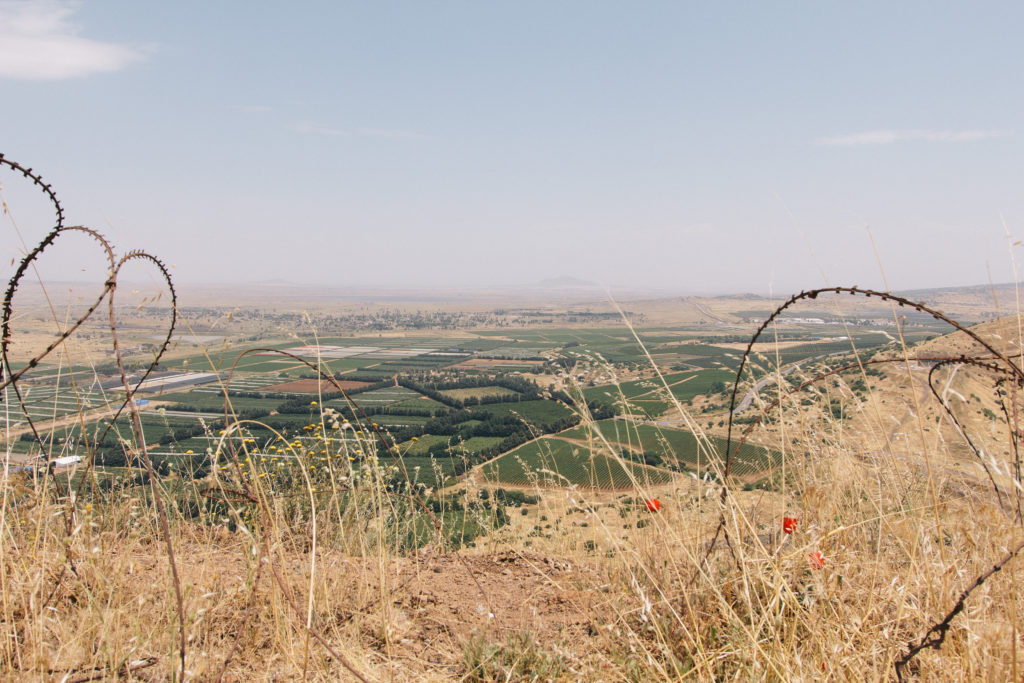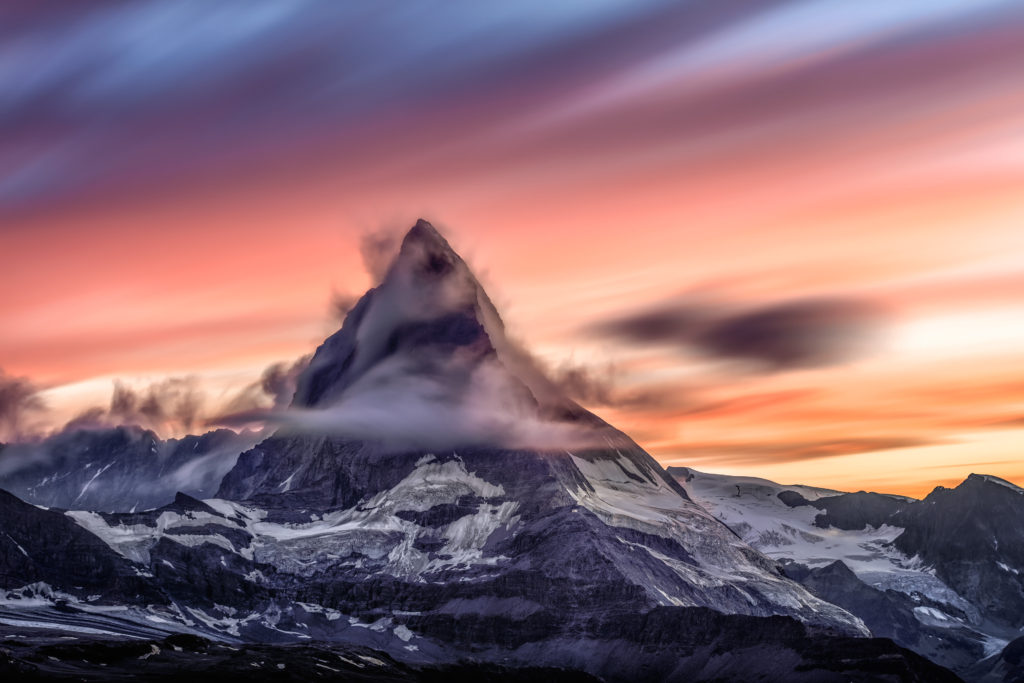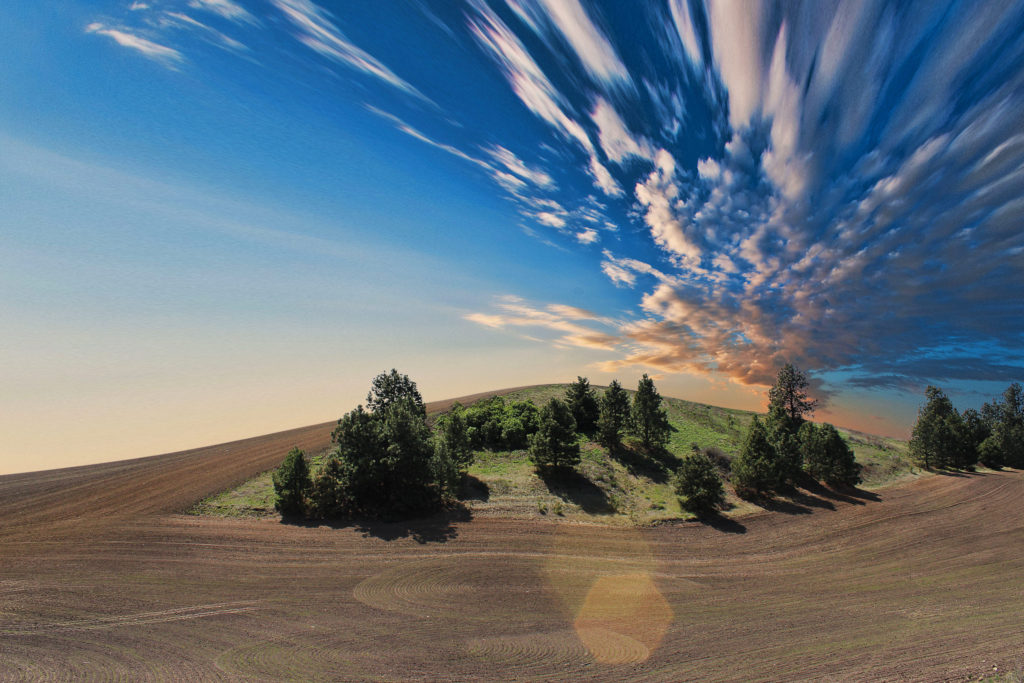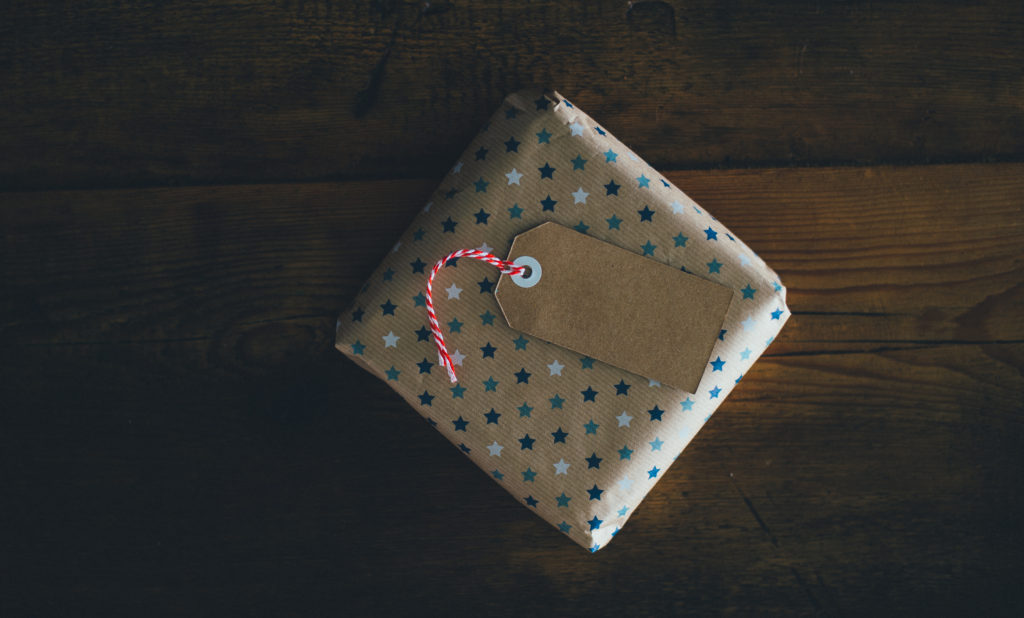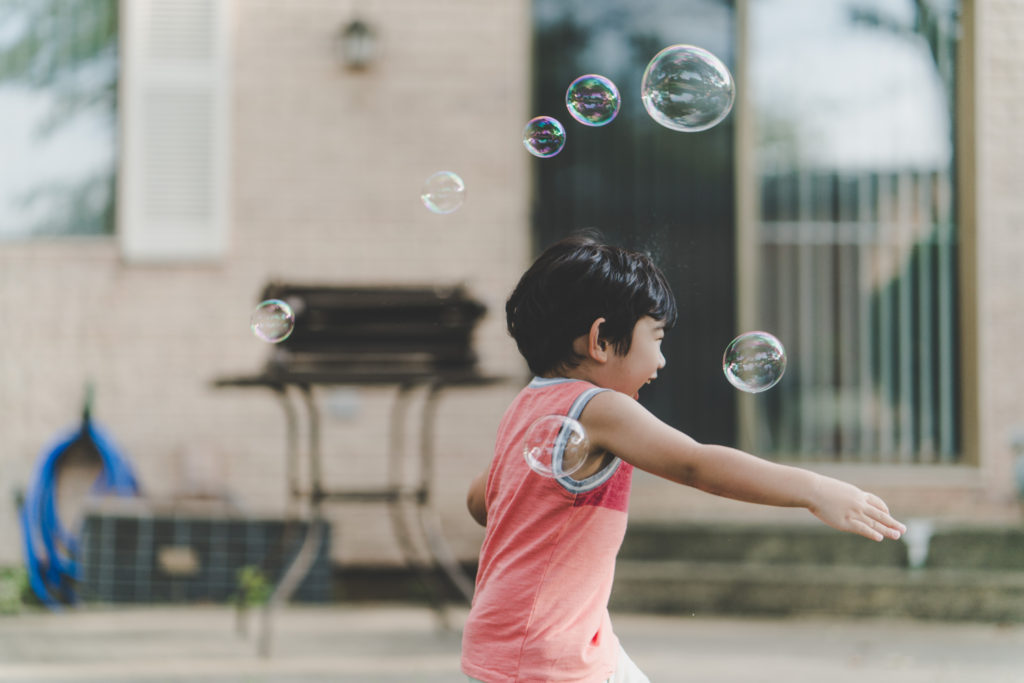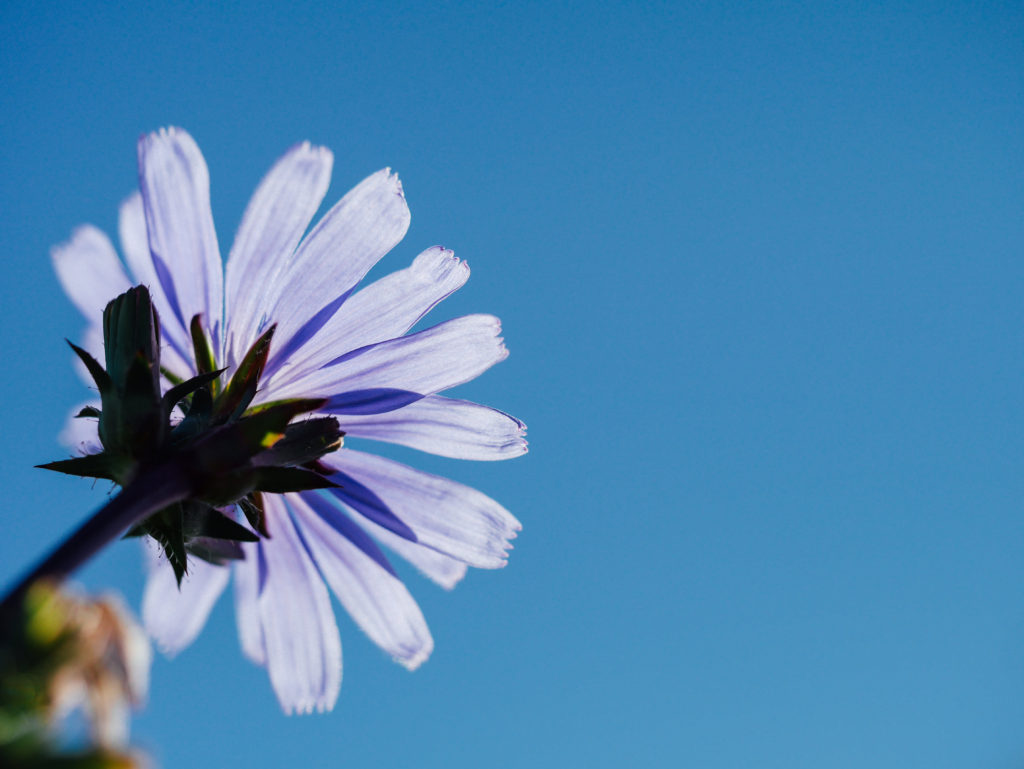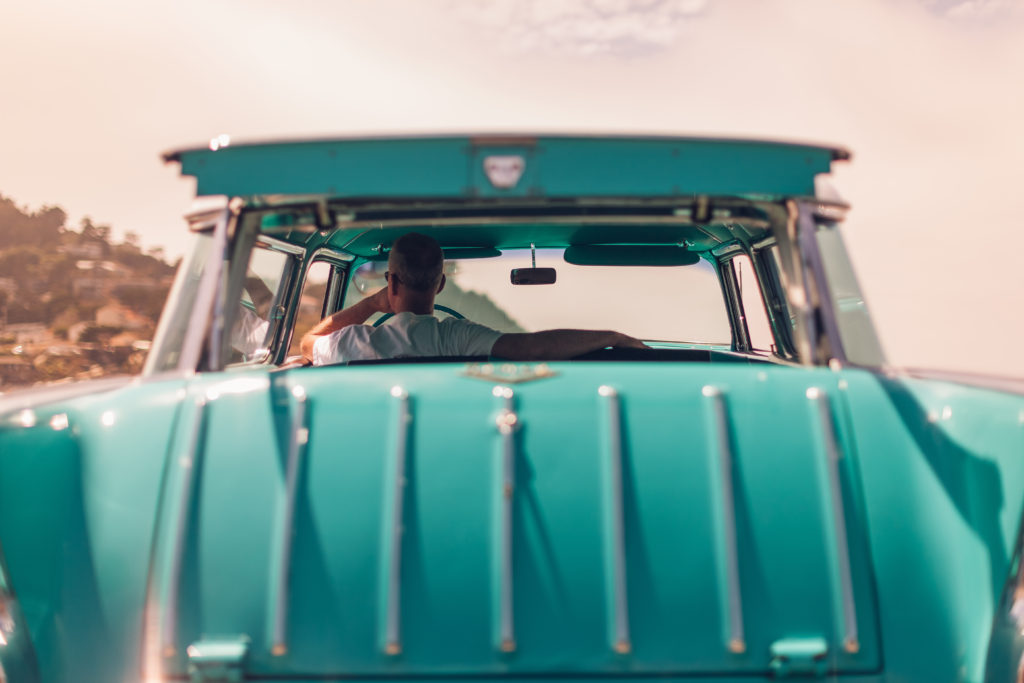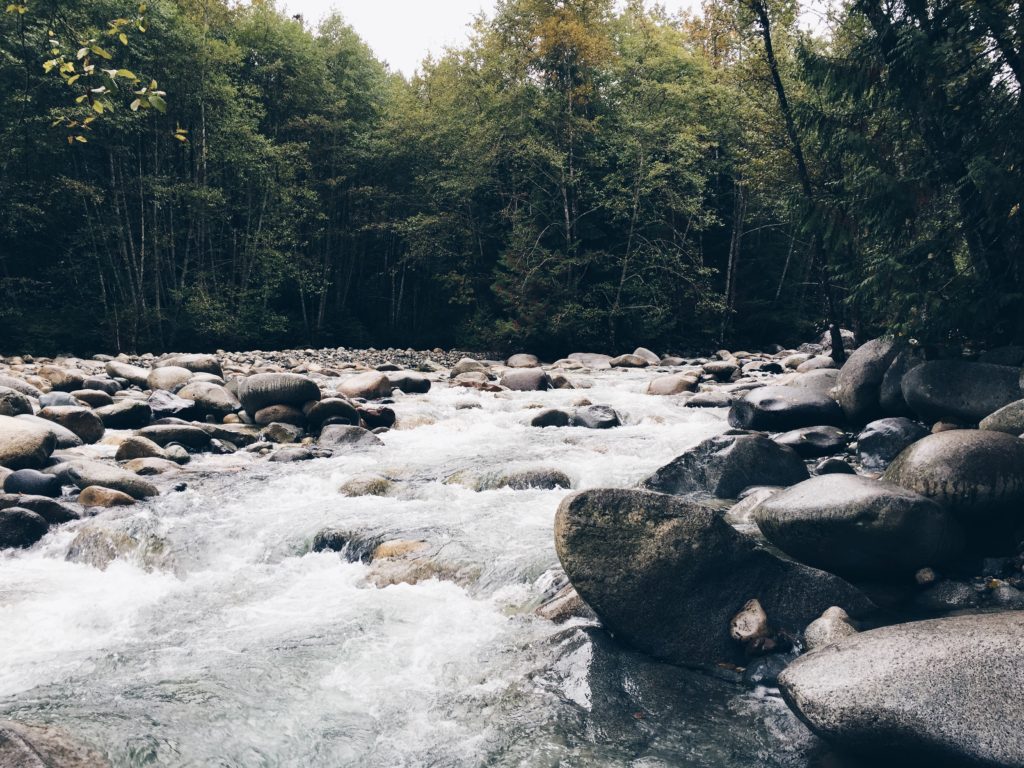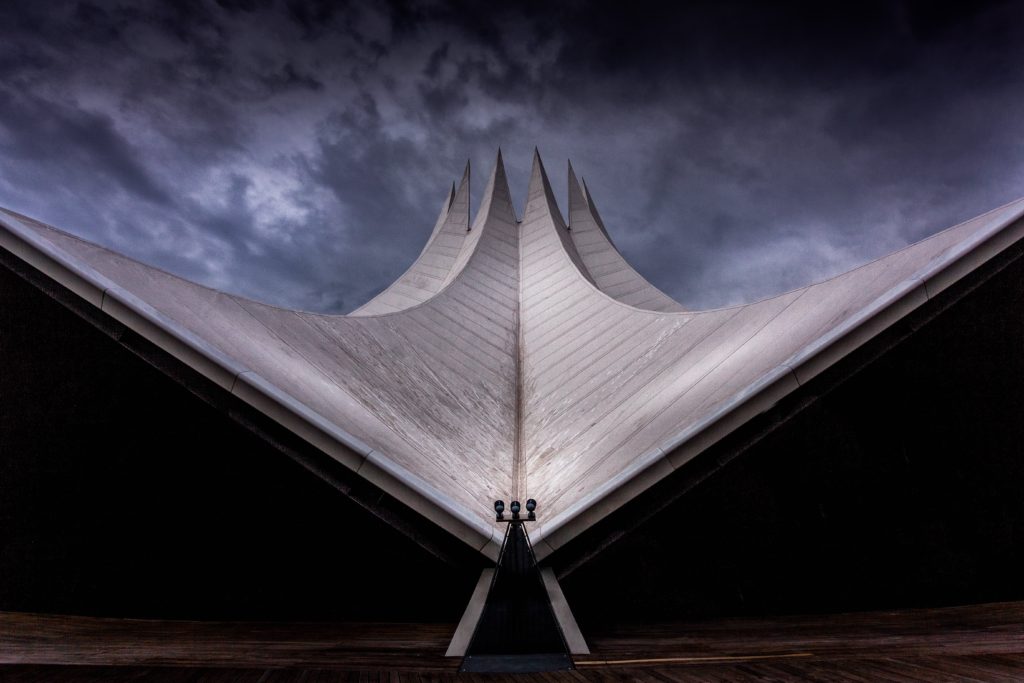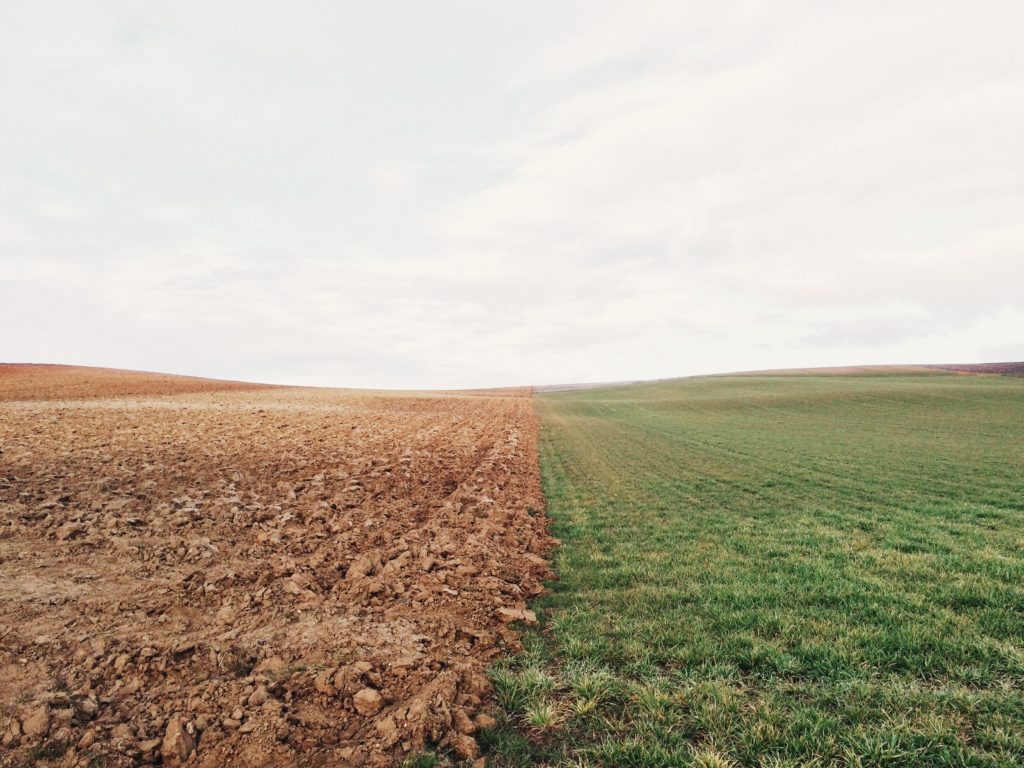On Thursday, I finally finished my Saturn return, meaning Saturn left the 20 degree orb from where it was when I was born. This led me to reflect on what the past four years have been like since I started this process, and what I’ve learned from this period. One of the biggest things I’ve learned is how to make and set healthy boundaries.
Boundaries do not come naturally to me. My natural predilection is for merger and oneness. I grew up in a yoga and meditation group that advocates dissolving the microcosmic self into the macrocosmic Self. My meditation practice focuses on feeling I am one with the loving, creative force that pervades the universe, and to see every expression as that loving, creative force as well. In my mind, boundaries keep me from that transcendent space. No one said that to me, by the way. That’s purely my interpretation.
I’ve been blogging for more than eight years so I have a digital record of my life and the issues I’ve faced. In November 2011, I wrote a post about boundaries as well. In it, I talked about the necessity of boundaries to keep myself safe. I displaced the notion safety meant avoidance and understood assertiveness is required for safety. The past several years has been learning that lesson over and over again until it stuck, but also I’m seeing the benefit of boundaries, not just because that’s how I keep myself safe, but also that’s how I become a vessel for cosmic consciousness.
In addition to emphasizing merger and oneness, my spiritual practices stress surrendering the mind, the self, letting it all go. I’ve wanted to surrender my mind and my self before understanding what they are, but that doesn’t work. How can you give something away if you don’t take ownership of it first? That’s like presenting a person with a prewrapped gift – how do you know what’s inside if you never took off the wrapping?
I feel so uncomfortable writing this post because again, it flies in the face of my natural inclinations, but what I’m coming to see is boundaries make me a container for the divine and creative force permeating all existence. Boundaries make me a vessel and an instrument that allows me to co-create with a power greater than myself. I liken it to a pen and ink. Cosmic consciousness is the ink and I am the pen. You can write with ink and no pen, using your finger perhaps, but it’s blotchy and messy and not very clear. Writing with a pen though is sharper, more distinct, easier to read.
Boundaries make me better able to show up in the world and do the work I am meant to do. Declaring this is me and that is you keeps me from codependence, which is a kind of subservience where I make someone else more important than me. Where I make someone else’s needs more important than mine.
We are each divine children of the universe, no better and no worse than anyone else. Taking care of myself by acting assertively, by understanding where I begin and where I end allows me to act accordingly, to treat myself with love, and to become a vessel for something greater than me.
I dream of a world where we understand boundaries are a necessary part of life. A world where we understand boundaries make us better able to do the work we are meant to do. A world where we realize boundaries make us vessels for love.
Another world is not only possible, it’s probable.
I feel a little strange writing this post on Rosh Hashanah eve, the Jewish New Year, for those of you who don’t know. The New Year is a time of hope and celebration, optimism for what’s ahead, but this post is about temperance.
For the past month, I’ve been getting in touch with my propensity to hope without any evidence. To hope things will change based on nothing more than a whim. September painfully brought me back down to earth, not because anything happened, but rather because I realized how damaging it is to have unbridled optimism.
For many years, I hoped people in my life would be different, that they would change their behavior, not based on any indication they had a desire to change, but rather because I wanted them to change. Last month in addition to accepting my health is what it is, I also started accepting people as they are. There’s a version of the serenity prayer applicable in this instance: “God, grant me the serenity to accept the people I cannot change, the courage to change the one I can, and the wisdom to know that one is me.”
As an optimistic, idealistic person, learning to temper my hope has been painful. Learning to live in reality and accept that this is the way things are, has been a tough pill to swallow. But on the other hand, I’m not so disappointed anymore. When someone responds the way they normally do, instead of feeling crushed, I feel neutral.
This post focuses on other people, but the case is also true for me. There are some things about myself that are not going to change, no matter how much I pray, say affirmations, or wish they were otherwise. And instead of feeling upset, I feel at peace.
I’m not saying hope is a bad thing because it’s not. Hope is a powerful virtue when it’s applied properly. There are many people doing great things in the world, and they give me hope for the future. That sort of hope is grounded, right-sized.
My spiritual teacher talks about harmony and equilibrium as most spiritual teachers do. It wasn’t until this last month that I realized virtues also apply. I must strike a balance between hope and resignation, optimism and pessimism, faith and doubt. I used to think resignation, pessimism, and doubt should be avoided at all costs, but now I’m realizing they have their place, they serve a purpose. They help me live in reality and that’s not such a bad thing.
I dream of a world where we temper our virtues. A world where we base our hope on evidence. A world where we strive for harmony and equilibrium, understanding that’s how we know true peace.
Another world is not only possible, it’s probable.
I am a compulsive doer. It’s hard for me to sit still. I jokingly say I developed maladaptive stress syndrome because I burned out my adrenal glands from doing too much. But maybe it’s not a joke. It should come as no surprise then that I search far and wide for solutions to my problems. I devour every book, every method, every suggestion with frenetic fervor hoping this, this will be the answer. Thus far, the answer has not presented itself. There is nothing worse than telling a compulsive doer there is nothing to be done.
On Wednesday, I went to the doctor again as a Hail Mary. I haven’t had diagnostic tests done for several years so I figured why not? I cried and later laughed as she threw out suggestion after suggestion of things I’ve already tried. In addition, the bevvy of diagnostic tests all came back normal. It has become clear to me this is the end of the road. There is literally nothing left to do because everything has already been done.
I asked myself, knowing I have tried everything, can I finally accept my reality? Can I finally accept things as they are? After many tears, the answer is yes. A weight has been lifted from my shoulders because I no longer need to do anything. All the solutions have been tried. All that I’m left with is acceptance.
Not knowing what I’ve been going through, a friend sent me a podcast from Invisibilia called “The Problem with the Solution.” In it, the show hosts talk about this very concept in the context of mental illness. They traveled to Geel, Belgium, where people with mental ailments live with families and are accepted just as they are. There is no stigma, the families don’t even know the diagnoses. Mental illness is accepted just as it is, and wouldn’t you know it, counterintuitively, people thrive in Geel. That’s not to say the diagnosis vanishes, but it improves.
In the U.S., we are obsessed with solutions. We believe if we look long enough and hard enough, the solution will present itself. But what if it doesn’t? What if there is no solution? What if the solution is accepting things as they are, right now? Please don’t misunderstand, I’m not suggesting people become doormats or tolerate injustice or give up on trying in general, but for the things which we keep trying to fix and are unable to, maybe those things require acceptance.
There’s a story in the Mahábhárata that comes to mind. When Duhshásana was pulling the sari of Draopadii, she was tightly holding the cloth to her body with one hand, beseeching lord Krśńa with the other. “Oh! My lord, save me!” But he didn’t come forward to save her. When Draopadii found no means of escape, she then released her hold on the cloth and appealed to the lord most piteously with both hands outstretched, saying, “O lord, I surrender my all to you. Do what you think is best.” And then the lord immediately rescued her.
I don’t offer that story as a means to get what we want, because surrender and acceptance has to be real, legitimate, and complete without thoughts of what we want, but the story reminds me that when I surrender, release, and let go, that’s when the divine has room to enter into my life.
I dream of a world where we accept the things we cannot change. A world where we understand there aren’t always solutions. A world where we realize instead of doing something, sometimes we need to do nothing.
Another world is not only possible, it’s probable.
When I was 20, I studied abroad in London. I interned with a publication that encouraged me to plagiarize. As you can imagine, it wasn’t a good fit. I was miserable and tried everything I could to get out of it – even going so far as lining up another internship, but the study abroad program said no. I still don’t know why. My parents got involved too and that also yielded nothing. It was the first time in my life that I couldn’t make my circumstances better. The first time I had to wait out a crappy situation. It was the first time I experienced a taste of authoritarianism and I hated it. The unfairness of it all outraged me.
The other day I watched a movie, Desert Dancer, and was reminded again, authoritarian regimes continue to exist. Except other people have it far worse. The movie takes place in Iran in 2009 where dancing is forbidden. I know, that’s also the theme of Footloose, but Desert Dancer is no sappy comedy, it’s real life. People are literally beaten and killed for expressing themselves artistically. As an artist myself, I’m horrified. Living in the U.S., I forget there are places in the world where legitimate authoritarian regimes exist. Where other people are not nearly as privileged as I am.
After my experience in London, I was able to come back to my normal life, to one of privilege and relative ease. But the people in Iran? Or Syria? Or some other country that barely registers in my brain? They are not so lucky.
It is easy for someone like me, a college-educated white woman living in the U.S., to do one of two things: feel guilty for my privilege, or forget other people exist. In conversations with other white people, I see so often we wring our hands and say we feel badly about the things other people have to endure, but what can we do? Or we feel guilty our lives are different because of our privilege. We carry around our white guilt like a suitcase at airport security, always ready to show it to someone else for inspection.
I also see that we forget. We forget other people exist except when a horrific tragedy jerks us from our daily lives. We go about our days wondering if that guy will call or the raise will come through. We get caught up in our own worlds. I’m not saying that’s entirely a bad thing – we must take care of ourselves – but we must also take care of others.
Friends, I don’t want my two options as a person of privilege to be white guilt or amnesia. Neither of those options does anyone any good. I would much rather use my skills to make the world a better place. As a journalist, that means giving a voice to the voiceless. It means telling someone else’s story and broadcasting it far and wide. For you, it may mean healing the sick or planting a community garden. We all have gifts and talents. There’s a quote by Hans Urs von Balthasar that sums this up nicely I think. He said, “What you are is God’s gift to you, what you become is your gift to God.” May we all become gifts not only to God, but to the rest of humanity.
I dream of a world where we use our talents in service of others. A world where we remember other people exist and we do our best to make the world a better place for everyone. A world where we all become gifts.
Another world is not only possible, it’s probable.
The other day I had an interesting experience. Coming home from the city, I stepped into Walgreens and noticed a couple in front of me, primarily because the man had a huge, green backpacking backpack. The couple left and I didn’t think much of it until about half an hour later when I exited my station and I saw the same man! This is surprising because there are many trains and many stations he could have taken, but we ended up at the same one. Keep in mind, my station is a residential one – it’s not a popular destination.
If that wasn’t intriguing enough, the same day I sat next to someone at the train station and he too, got on my train and exited my station. When I noticed his presence as well as the man with the green backpack, all I could do was laugh. It reminded me that knowingly or unknowingly we are all moving together.
In Sanskrit there are several words to denote this concept, one of which is samáj, which means “society,” or a group of people who are moving happily and peacefully. In today’s world, this concept seems especially important to remember. Some people live in their own little bubble, thinking they are the only ones in existence. Other people are not thinking much about their actions and only looking out for themselves.
In the U.S. in particular we praise independence and rugged individualism. We’re in love with the myth of the self-made person, the lone wolf. We romanticize the notion of self-sufficiency, or at least that’s my perspective. However, I would challenge that notion. As I said to a friend the other day, it takes a village to raise a child, but I also think it takes a village to be a person. We’re not meant to do everything by ourselves, and why would we want to? Like it or not, we’re all in this together. Noticing those people on the train the other day reminds me we may think we’re our own little universe, but our universes are moving together. We are all on this big blue planet spinning through space.
My spiritual teacher says, “The proper thing is for all members of the society to move in unison; and while moving together, each member should feel a responsibility for every other member of society. Those who are unable to move must be carried so that the rhythm of the collective movement remains unbroken.”
I love this notion because we may pretend otherwise, but we are all dependent on each other and the world would be a better place if we all started acting like it.
I dream of a world where we realize we are all moving together. A world where we feel responsible for other members of our society. A world where we take care of not only ourselves, but each other.
Another world is not only possible, it’s probable.
I am an impatient person. Almost nothing happens fast enough for me. I want things yesterday. Wait for something? No thanks. This is an attitude supported by our society, in my opinion. There’s an underlying belief if something isn’t happening on our timeline we need to move on. I notice in myself and others we don’t want to wait – we want things to happen instantaneously.
I reflected on this during my meditation the other day and what bubbled up is, “What’s the rush?” What’s the rush indeed. Why am I in such a hurry to get where I’m going? Can I let things unfold naturally, and slowly?
My spiritual teacher says, “Suppose, immediately after planting some saplings and seeds, someone digs them up to find out if they have taken root or sprouted. That would not be considered wise.” He also says, “Each action has an equal and opposite reaction provided the three relative factors of time, space, and person remain unchanged. Whatever you do is an actional expression determined by your past actions. Your actions will certainly have reactions, but you may have to wait some time for their expression.”
Again with the waiting. We all know patience is a virtue and things get better with time, like wine and cheese, but I don’t consume either of those things so I don’t connect with that comparison. What helps me is I think of my mother. My mom graduated from medical school when she was 64. That in itself is inspiring, but particularly what I think of is how she opened her own medical practice. In the first year, she barely made anything, she hardly saw any patients. It would have been very easy for her to say, “Oh well, not happening fast enough, time to move on to the next thing.” Instead, she stuck with it. It’s been a couple of years, but she reached a point where she needs to hire someone a few hours a week to help out around her office. It didn’t happen quickly, but she’s finally seeing results.
That also reminds me of a podcast I listened to the other day on fear and creativity by Elizabeth Gilbert. One of her guests was comedian Michael Ian Black who said persistence is the most underrated quality a creative can have and talent is the most overrated. That concept stuck with me like a burr because it says to me if I persist, I can be successful. If I keep putting in the work, eventually it will bear fruit. The timeline is not up to me, but the work sure is.
I’m not saying stick with something if it makes a person miserable. But maybe we’re giving up on things too soon? Maybe if we had a little patience we’d see the results we’re after? There are no hard and fast rules on this unfortunately, but for me, erring on the patient side often seems more beneficial than the action side. Maybe that’s true for others as well.
I dream of a world where we are a little more patient to see results. A world where we’re a little more patient with ourselves and each other, understanding not everything can be hurried. A world where we ask ourselves, “What’s the rush?” and realize often there isn’t one.
Another world is not only possible, it’s probable.
I had an interesting experience this week. A friend posted this article about how family trauma can be inherited. I’d heard of the concept before, especially when epigenetics came to the scene, but I didn’t think the issues I’m addressing right now could be related. I thought epigenetics made me more prone to overreact to stress because my ancestors experienced stressful situations. Stuff like that. However, reading that article had me rethink some things.
One of the issues that’s plagued me for a long time is a fear I’ll be replaced, usurped, or forgotten. I attributed it to being a middle child, but this week I contemplated whether the issue was rooted in my ancestral lineage. Before World War II, both of my grandparents were married to other people and had families, all of whom were killed. By the time my grandparents married each other, in a way, their previous families were replaced, by the living.
My mother has shown me a family portrait taken before the war – a whole gaggle of people – and then she points to a few people and says, “These are the only ones who survived.” I have no idea who the rest of my relations are, I don’t know their names, or their stories. They have been forgotten. Even typing this right now I’m tearing up because I feel the grief around that, these lost family members.
I started meditating after reading the article about inherited family trauma, and I said to all of my ancestors, “I’m inviting you back into the family. I’m acknowledging you. You have a place. You are not forgotten and your role will not be usurped.” Afterward, I became frenzied and manic. Energy buzzed through me and hours later after I calmed down, I felt relief in way that I haven’t before. Instead of feeling insecure, worrying that I’ll be replaced by someone else, I felt an assurance that I am irreplaceable.
I am fascinated by the whole thing because so often I think of myself living in a vacuum – my issues started with me and that’s the end of it – but this experience has me thinking perhaps that’s not true. My spiritual teacher says we are affected by our environments and by external sources. Not just in the sense of, “It’s cold outside and that makes me cold,” but “I live with drug dealers so I’m more likely to deal drugs myself.” We all know this, don’t we? It makes complete sense, but it didn’t occur to me until the other day that the effects of someone else’s actions who I’ve never met, who I don’t know anything about, could be impacting me today. Not in terms of government policies, but personal traumas like being locked up in a mental institution or losing a child.
The good news is this stuff can be healed. Mark Wolynn, who wrote a book called It Didn’t Start With You, says:
“On a higher level, I believe these traumas are important, because they lead us on a hero’s journey. We enter the path through introspection, through looking at what’s uncomfortable, by being able to tolerate what’s uncomfortable, and then by journeying in to what’s uncomfortable and emerging on the other side in a more expansive place, using what was contracting us as the source of our expansion. Many of us don’t realize that the trauma we are born to heal is also the seed of our expansion.”
I dream of a world where we delve into what’s uncomfortable. A world where we understand our issues are not ours alone and may have a root in what happened to our ancestors. A world where we understand we all have carryovers from the past and we finally put the baggage down.
Another world is not only possible, it’s probable.
I’ve come to believe that to be alive means to experience trauma; and I don’t mean things like war, or car accidents (although those things too) — I mean things like death, divorce, and anything else that shakes us up and makes us feel unsafe physically or emotionally. Trauma can also be secondary, by the way. It can be hearing or seeing someone else’s traumatic experiences. When you take into account the majority of news stories, I’m pretty sure we’re all walking around a little traumatized.
We all deal with trauma in our own ways, but I’ve noticed I deal with trauma by minimizing it, dismissing it, or doing whatever I can to distract myself from the depths of my feelings. Who wants to feel sad or angry or insecure when there are movies to watch, people to call? Who wants to feel sad or angry or insecure when there are places to visit and dreams to chase? I certainly don’t. But the reality is, we can’t outrun our trauma; it clings to us like a shadow. Carl Jung said, “Until you make the unconscious conscious, it will direct your life and you’ll call it fate.”
Carl, why you gotta be so spot on? I don’t want to make the unconscious conscious, but I’ve reached a point in my life where I can’t ignore it anymore. As someone said to me once, “What you resist, persists.” I wanted to punch them in the face when they said that to me, but I found, yes, it’s true. I kept working so hard to resist, but my resistance didn’t banish the problem, it only served to keep it alive. The question then becomes, how is a professional emotional runner, so to speak, supposed to all of a sudden stop running? How can a person face their demons instead?
When I brought this up to my therapist, he said to me, “Just lie down. Instead of actively trying to skirt the perimeter, yield, and let the flood wash over you.” And wash over me it did. When I stopped actively trying to do anything, all of the emotions overtook me. I didn’t enjoy it, it wasn’t “fun,” but I feel relieved. It takes a lot of energy to run away from feelings. A LOT. By stopping, by turning around to face my feelings instead, I feel drained, but in a good way. Like after a full day swimming.
To tie all of this to a spiritual concept, people talk a lot about being in the flow of life – me too – but I think it’s important to remember, getting into the flow is not always an active process. Sometimes being in the flow is allowing ourselves to be carried by whatever is here. Just like flowing down a river, it’s a lot easier if we don’t resist, and also, we have no idea where it will take us.
I dream of a world where we yield to what we’re resisting. A world where we feel our feelings instead of pushing them away. A world where we put ourselves into the flow by understanding sometimes that’s a passive process.
Another world is not only possible, it’s probable.
I am deeply insecure. I want to know what’s mine is mine, that it can never be taken away from me. I want to believe what belongs to me or with me has been earmarked with my name on it in indelible ink. I want to believe things are fated, that they are going to happen no matter what.
I turned to my spiritual philosophy for answers and instead of feeling reassured, I feel even more insecure, so that’s awesome.
My spiritual teacher said, “The stars do not control you; your original actions control you. And where the original action is not known to you, but the result is known to you, the result is experienced by you, you say it is fate.”
In other words, for every action there is a reaction, and that reaction is often called fate. And the reaction may not be expressed in this lifetime so in that instance we’re even more likely to call it fate. He also said we think things are predestined but “destiny cannot be the absolute factor, for if you do not exist, if you do not act, destiny cannot exist either.”
Arg. This does not make me happy because again, insecure and anxious over here, but at the same time, I appreciate the stance because it means I have to show up for my life. It means I have to be an active participant in my life to manifest the things I wish to see. Furthermore, the reactions will come about, we do reap what we sow. We are not puppets with strings, dancing about according to the whims of a capricious entity. What we do, what we say, how we act matters – not only for the here and now, but for the future. Our destiny is our own creation.
Here is what I know, which also ties into my post from last week. I have to stay focused on the here and now. I have to keep putting in effort to achieve what I want – it’s not going to be handed to me on a silver platter, but other things will. And instead of thinking of those things as happy coincidences, it’s important for me to understand it’s perhaps as a result of past actions I took, actions I may not even be aware of. Furthermore, something else I know to be true, is the universe is working for our benefit. There are forces at work that want to see me succeed, that guide me, that steer me in the right direction, and it’s important to keep coming back to that. To keep coming back to center.
I guess what I’m saying here is I am not powerless. I am not off the hook for my life. At the moment, that terrifies me, but maybe tomorrow I’ll wake up feeling empowered because ultimately that’s what this philosophy about fate is seeking to do: to let me know my actions matter and to behave accordingly.
I dream of a world where we have a sense of our own agency. A world where we realize fate is the reaction to a previous action. A world where we keep showing up for our lives because we understand we mold our own fates so the present should be properly utilized for the future.
Another world is not only possible, it’s probable.
There’s a lot of talk recently about how Americans are uninformed, uneducated, etc. I’ve seen quote after quote about how we need to fix our education system so that tyrants are not believed and do not come into power. However, as someone who has a college degree, I do not consider myself to be uneducated, yet I’m still taken in by high-minded speeches. I am easily swept away by rhetoric, especially if the person is addressing a pain point.
I read an article recently about why poor whites chant “Trump, Trump,” and the author said it’s for so many reasons, but one of them is Trump speaks to the frustration of poor whites. Of people who feel like the government doesn’t care about them. The author said, “Trump supporters believe he’s different. They believe that he cares about us [poor white people], that he tells it like it is, that he gives us a voice, that he can’t be bought because he’s already rich, that he’s railing against politics as usual.”
Related, I read another article about the historical perspective of what will happen next with Brexit and Trump. Tobias Stone said, “Lead people to feel they have lost control of their country and destiny, [and] people look for scapegoats, a charismatic leader captures the popular mood, and singles out that scapegoat. He talks in rhetoric that has no detail, and drums up anger and hatred. Soon the masses start to move as one, without any logic driving their actions, and the whole becomes unstoppable.”
The part that stands out to me is “rhetoric that has no detail.” I think it’s crucial not that we become more educated, but that we become more discerning. To ask ourselves, “OK, you promise to make America great again, but how and at what cost?” It is so easy to get swept away by something because it sounds good. It’s much harder to use our brains to dig in and figure out the details. I say this as someone who struggles with discernment herself. I can’t tell you how many books I’ve purchased because the author proclaimed they had all the answers and could help me live the life of my dreams.
My spiritual teacher is a big advocate of discernment or discrimination. He says it is only through discrimination the mind can determine the goodness or evil in a thing or in its uses. And also that proper questioning is vital. Proper questioning is “asking questions to the right people who will provide appropriate answers to help one solve any problem one may encounter.”
I appreciate that he says the right people. That means I need to ask questions of people who know more than me, someone more experienced. An expert if you will, not someone who sounds like they know what they’re talking about but is actually full of crap.
What I’m advocating here is not that we become more educated, more informed, but rather that we approach things with a healthy degree of skepticism. That we ask ourselves, “How do I know this is true?” instead of assuming automatically it is. Does this post sound preachy? If so, it’s because I’m gunning for our future. When we stop discerning, that’s when despots rise to power and very few people benefit in that instance.
I dream of a world where we practice discernment. A world where we ask how we know something is true instead of automatically buying it hook, line, and sinker. A world where we understand using our brains not only benefits us, but the entire society. A world where we realize discernment is crucial.
Another world is not only possible, it’s probable.
